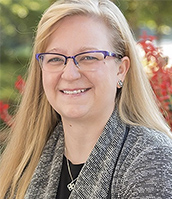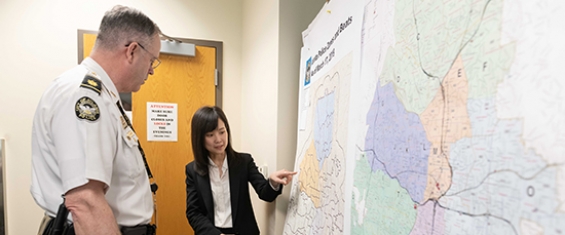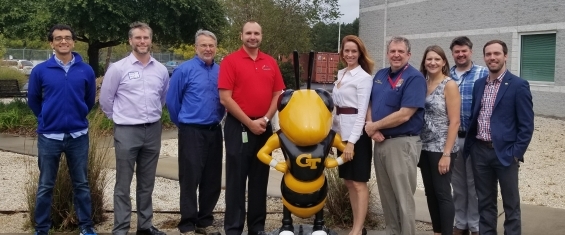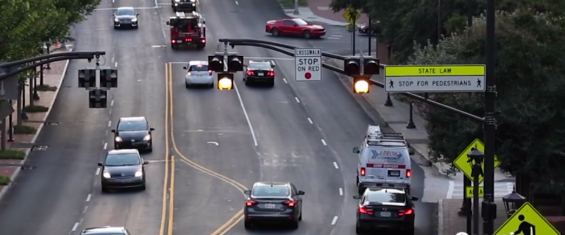
Just, Resilient, and Informed Communities
Discovering strategies that benefit and inform communities from all walks of life. IPaT’s work in this area focuses on the daily lives of communities – how they live, work, and play. We are finding innovative approaches to shaping sustainable cities with research that thinks globally while acting locally. We're examining the transformative role of technology in transportation, civic engagement, and disaster recovery focusing on novel communication and information technologies to aid communities.

Initiative Lead: Danielle Willkens
Danielle Willkens leads just, resilient, and informed communities research. Willkens is an associate professor in the School of Architecture in the College of Design. Willkens, Assoc. AIA, FRSA, LEED AP BD+C, is a practicing designer, researcher, and FAA Certified Remote Pilot who is particularly interested in bringing architectural engagement to diverse audiences through interactive projects. Her experiences in practice and research include design/build projects, public installations, and on-site investigations as well as extensive archival work in several countries. She was an inaugural Mellon History Teaching Fellow at Dumbarton Oaks, exploring the project “From Plantation to Protest: Visualizing Cultural Landscapes of Conflict in the American South.” She currently has several research, documentation, and visualization projects in Selma, AL and Atlanta, GA supported by National Park Service’s African American Civil Rights Grants. She is also leading efforts on heritage documentation and sustainable tourism, alongside a number of collaborators, at the Penn Center, SC, Valencia, Spain, and Petra, Jordan.
Featured Projects

Data-Driven Policing
In an effort to reduce police officer response times to calls for assistance, Georgia Tech and the Atlanta Police Department partnered on a year-long project to reconfigure patrol areas across the city.

Smart Sea Level Sensors
Researchers: (See the Sea Level Sensors website for complete list) The Smart Sea Level Sensors project is a partnership between Chatham Emergency Management Agency officials, City of Savannah officials, and Georgia Tech scientists and engineers who are working together to install a network of internet-enabled sea level sensors across Chatham County. The real-time data on coastal flooding will be used for emergency planning and response.

North Avenue Smart Corridor
In September 2017, the City of Atlanta and Georgia Tech launched the North Avenue Smart Corridor. It’s the most connected corridor in Georgia and a living laboratory for traffic management through technology. The Renew Atlanta infrastructure bond is funding the approximately $3-million project.
Featured Centers, Labs, and Initiatives

Center for Urban Innovation
The Center for Urban Innovation (CUI) supports research that thinks globally, acts locally, and encourages researchers, students, and civic leaders to find innovative, interdisciplinary approaches to shaping sustainable cities.

Digital Building Laboratory
The Digital Building Laboratory (DBL) connects Georgia Tech researchers to professionals in the architecture, engineering, construction, and operations (AECO) industries. The laboratory brings practitioners working in the field together with cutting-edge research in data science, robotics, 3D visualization, and materials science.

Digital Humanities Lab
The Digital Humanities Lab explores how digital technologies and related computational techniques engage questions of humanistic inquiry. We draw from the expertise of students and faculty in the Ivan Allen College of Liberal Arts in order to identify how issues of computation intersect with literary, historical, and cultural concerns.

Smart Cities and Inclusive Innovation
Georgia Tech’s initiative on Smart Cities and Inclusive Innovation develops innovative approaches to shaping resilient and sustainable communities. Through research and development, strategic partnerships, and cutting-edge programming the initiative brings Georgia Tech's interdisciplinary expertise in technology and policy to the development of smart cities and communities.



